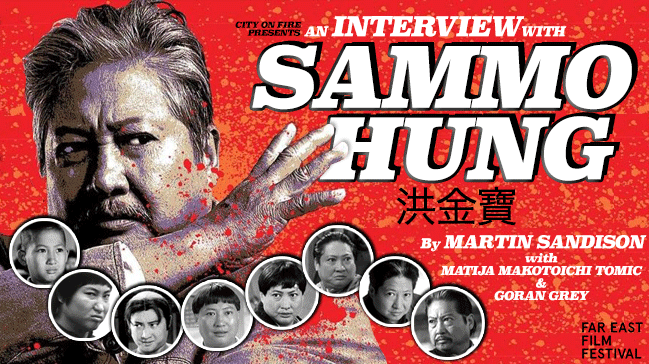
If you were to ask me who I thought was the ultimate kung fu filmmaker, one name would instantly spring to my mind: Sammo Hung.
During my childhood, his movies – such as Prodigal Son, Warriors Two, Magnificent Butcher and many others – stoked a fire in my imagination and helped me through some dark times. When I heard he was appearing at the Udine Far East Film Festival in Italy, I immediately thought: “I have to go!” Thanks to my friend Ryan Law and the great staff at the festival, my dream of meeting my personal hero came true.
Sammo was everything I’d hoped he would be: funny, kind, warm and a true gentleman in the purest sense of the word. Despite being in a collective interview, it was an experience words cannot describe. My friends Matija Makotoichi Tomic and Goran Grey managed to get a one-to-one with him, which is also included in this exclusive interview.
Without further ado, here’s the interview for one of the true legends of martial arts cinema.
TIM YOUNGS: I’d like to welcome our special guest today, Sammo Hung! (audience clapping, cheering)
SAMMO HUNG: Thank you, thank you.
TIM YOUNGS: Sammo’s here to receive the lifetime achievement award for his contributions to Hong Kong cinema over more than 5 decades. He has an incredible filmography, and his first onscreen credit was achieved when he was just a child in 1961.
SAMMO HUNG: (In English) Me too, I’m a child too. (audience laughter)
TIM YOUNGS: By the late 60’s he had progressed to assistant action director. By the mid to late 1970’s, he had moved in to directing, and that progressed in to a career that became one of making hit films as a director and actor. He was one of the most popular Hong Kong actors since the late 1970’s. Over the years he has had experience in all sorts of genres, from martial arts to horror to modern day action. Now, he is very well known as an action choreographer working on major productions. This year the Far East Film Festival is showing his new film The Bodyguard. So perhaps you would like to introduce the movie?
SAMMO HUNG: (In English) The Bodyguard is a good movie. (audience laughter) I had stopped being a director for the last 18 years. So I feel like I’m a new director again for The Bodyguard. I feel like at this point to get a lifetime achievement award is a little bit too early for me. (audience laughter)
Actually, I wanted to be director of this movie. So when the boss showed me the script, I read it and 2 weeks later he asked me: “What do you think?” I said: “It’s a very good script” He said: “Do you have the time?” I said: “Yes”. I have been working in this industry most of my life and it’s very rare to find a really good script. I really love movie making. Acting and directing. However, if you want me to count it, I could only say maybe a handful – like 5 or 6 movies I’ve made – have good scripts. So if I see a movie with a really good script and I wasn’t involved, I feel aggrieved that I wasn’t part of that collaboration. So if there’s a good script and nobody invites me to be involved, that’s very hard, because opportunities are rare to come by. So, in a way, I’m really involved in this movie, I was the director, I was acting in it, I was also the action choreographer and I think I totally invested myself into the whole collaboration and creative side of this movie. When I made The Bodyguard, I enjoyed everything. In the morning, I enjoyed it. Even when BREAK! GO! I enjoyed it. (audience laughter)
TIM YOUNGS: When you first saw the script, was there a specific theme, idea, or concept that appealed to you in particular?
SAMMO HUNG: This is a script that is very strong and complete, and I don’t feel I need to change a lot. I just added my own thoughts and ideas in making the movie.
TIM YOUNGS: The film also has different genre types. There’s a lot of drama, there’s a lot of action. It’s an interesting balance. I feel that in a lot of your older films, you like to cross into different types of genres. What appeals to you in that way?
SAMMO HUNG: Before I did everything… horror movies, action movies. Now, I want to try love stories. Before it was just fighting, now I want to try everything. Now, I want to find the new, young action stars. In Hong Kong, it is very difficult, in Mainland China, they have had the chance, but don’t really make kung fu movies. Because before, everybody loved it when I made the kung fu movies. But now, give me a chance to make the love story (audience laughter).
TIM YOUNGS: Where would you look for the new martial arts talent?
SAMMO HUNG: I will start after June to look for Martial Arts Champions in China, and give them a good chance to join me.
TIM YOUNGS: Now we can jump to the floor: are there any questions for Sammo about his career?
JOURNALIST: I enjoyed the movie. I think everyone will like it. I’d like to ask you about the Hong Kong movie market. Less and less good movies are made in Hong Kong, and I wanted to ask you what will you do. Will you do something to save the Hong Kong movie market or will you abandon it and move to mainland China?
SAMMO HUNG: Now, the problem is nobody in Hong Kong is making kung fu movies. Even for the last 5 years. There is no training platform for the students. 20 years ago, 30 years ago, they have the training and they thought, with hard work, I can be an action star. Now, we don’t have these kinds of dreamers who want to shoot the movies. This is the problem in Hong Kong. The young kids, they don’t dream. They become waiters. Or they dream of being singers, dancers, and TV is very popular. So they go this way, they don’t think “I need to train hard”.
Mainland China is young in terms of the movie market, and in ten years they have grown up. Sammo Hung, Jackie Chan and Yuen Baio are popular until now. How many new action stars coming up? Only 5 or 6. Now in Mainland China there are kids training… they all know kung fu. So now they need a chance, so we will see the next generation of kung fu movie stars. Immediately, in my mind, I want to establish my own company in Shanghai. I will set up martial arts schools and call all the Martial Arts Champions and students to come. And of course, they will have to love movie making, acting as well.
I want to create an opportunity for them to train to be kung fu stars. So my next goal is to find the next kung fu actors from China. If I discover these people, they don’t need to only work for me. I will be equally proud and happy if they can become a success in all the areas of movie production. So I will stay behind them and wish them success. I’m not Jackie Chan. Jackie Chan is a hero. In my movies before, you can see there are so many actors, I’m not the top guy. I love movies, I love characters. I love people who can do a good job. They work for me, they don’t work for me, I’m happy. (audience clapping, cheering)
TIM YOUNGS: I’d just like to extend that a bit. You are obviously very interested in martial arts cinema. How have you seen the market change? In Hong Kong for example, martial arts films haven’t been as popular as they were in the mid-90’s. Is it difficult to find investors to work with new talent?
SAMMO HUNG: First I want to say, in Hong Kong, not only martial arts movies are going down. In the last 7 years, the Hong Kong film market is always going down. To make the drama movie, you need 7 million dollars. For the kung fu movie, you need 12 million dollars. But now in Hong Kong, the market is very low. Before when we start shooting in Hong Kong, they say “Sammo Hung, we have a new movie has started”. And in lots of places like Korea, Thailand, Malaysia they say “Oh, we will buy your movie”. Now they need to see the movie, then they will decide to buy or not. So, if we make the kung fu movies with new guys, nobody wants to buy it. So, you’re asking me when in Hong Kong martial arts movies go up, I really don’t know. And Mainland China, they will put a lot of money in to casting. They don’t know how to push the new people.
FRED AMBROISINE: I wanted to talk about your career as an actor. You stopped working as an actor in the mid 90’s. And then you played a very important role as an actor in SPL. This one was important because you played a bad guy, and you hadn’t played that since maybe in the 70’s, where you were fighting Angela Mao Ying. So could you tell me what made you decide to accept this role?
SAMMO HUNG: I don’t normally play bad guys, as you said. Now, it’s a very simple answer, it’s who pays me the most! (laughter) Joking. I actually examined the script very carefully. I looked at how this character was portrayed, why was he the bad guy, how was he described in his personal life. I Wanted to make sure the audience understood who this bad guy is. Obviously, I didn’t want the role of the bad guy to affect people’s perception of me. So, whether playing a good guy or a bad guy, I want to see that the script has the full character development for me to be a good actor, so that I could use my acting methods to express the character, which will eventually enhance the story telling.
So, for a while I was like Robin Hood. I was always helping people and because a lot of people in the industry are good friends – actors, directors – and they all have interesting projects, and I say: “I have a role for you, come and help me out”. So I was playing Robin Hood for a long time, for a lot of my friends. Just like this movie The Bodyguard, there are a lot of old friends in it. They just come in one day to shoot. Like Tsui Hark, Karl Maka, Dean Shek. And my Seven Little Fortunes classmate Yuen Baio. So in the industry we really value our old friendships. We all reciprocate this too, and I will never reject them and help them out whenever I can.
TIM YOUNGS: I’d like to introduce another topic as well, because we’ve talked about your work as a director and actor. What about action choreography. Do you follow a specific school or style, or do you like to mix it up?
SAMMO HUNG: I like to mix it up, because every character, every movie, is different. Like, who is the character, how do they fight? I like to give the audience something new.
JOURNALIST: I noticed that Jackie Chan also is doing something similar, trying to discover martial arts talents in China. Are you doing it the same way or using different ways as him?
SAMMO HUNG: Jackie Chan has his own way of discovering the talents in China. It seems like I am doing the same. It is not about who is doing what, the matter is that all of us are doing it. We have all started this path. This path is for long term development. We want to create a cradle of new talents. In the long run it’s a very strategic decision to train new talents, to create new opportunity’s for the future of the movie industry, especially for the martial arts genre. There are schools everywhere, everybody is learning something, and it’s important for the future that’s what matters.
MARTIN SANDISON: I wanted to ask you about traditional kung fu films because they seem to be dying. Your films such as Warriors Two and Prodigal Son are two of my favorite films and I wanted to ask will you make another traditional kung fu film?
SAMMO HUNG: You need to have faith, and you need to have patience, and give me time, and I will bring back the traditional kung fu movie that you like. (audience clapping, cheering)
FRED AMBROISINE: As an action choreographer you have won awards for Prodigal Son and Ip Man. There is no such award in Hollywood. I want to know if you think action films are less respected in Hollywood than Hong Kong because there are no awards for best action choreography.
SAMMO HUNG: Because they don’t have martial arts movies, so they don’t know what martial arts or what kung fu is. Only the TV show, Kung Fu. But you notice that recent Hollywood film are influenced by Hong Kong action movie elements. Like in 1999, when I was in America shooting the TV series, Martial Law, I was in my trailer, watching period movies, Chinese movies. They fight in the air y’know. Suddenly the American guy came to my trailer. He watched the Chinese actors flying, fighting. He said: “Wow!” I said: “Americans only have one Superman. In China we are all Superman!” (audience laughter)
In Chinese or Hong Kong martial arts movies, our history of making them goes way back. This does not exist in American culture. Actually, martial arts as a school is already deep rooted in Chinese people’s mentality and their culture. So, martial arts movies are deep rooted in everybody’s mind. Given time we believe Hollywood will have the same perception from the audience. So, you notice more and more fighting scenes are shown in new Hollywood Blockbusters. Just like Hong Kong before. So back a long time ago in the Hong Kong Film Awards, there was no award for action choreography, it did not start right from the beginning. So having the award is an endorsement and a recognition of the Hong Kong movie talents. It’s not like we got a prize, but it’s are endorsement for the talents that have worked all their lives in this trade. It’s a very significant award. Thank you. (audience clapping)
JOURNALIST: I would like take the opportunity to ask you a question, Mr. Sammo Hung, because we are really happy to have you here, in our town. I would like to know how do you feel here? Also, there is another thing because martial arts is very important as you said to Asian culture, and here, we have a similar thing about soccer. We have a team here and you will go tomorrow to see the game. So do you think there is any link between martial arts and soccer?
SAMMO HUNG: Actually, I like martial arts and I like soccer, too. I’ve been like a deputy captain in a team for 2 years in the South of China before it was very popular. When I was there it was popular, now it’s not! (audience laughter)
And then also, I was an investor in my own soccer team for 2 years. I didn’t want it to be a commercial for Sammo Hung. At the time everyone knew me. So I put a lot of money in to the team, and I watched them play, they got hurt. I thought: “why in Hong Kong is there no young soccer team?” I could see that they work very hard but I didn’t see many young players on the field anymore. A lot of the time, they hired players from England and other players to play in the Hong Kong team. So the question always lingered in my mind: “why don’t we train our own local soccer players?” So I spent 20 million Hong Kong dollars to invest in and finance my own team. This kind of investment, a lot of the time is a one way street. The money just goes out and you never get your investment back. I don’t need the money. I want to help the young boys. Like: “Do a good job, train hard, then maybe 2 or 3 years later you will be a star. Don’t be narrow minded. Don’t have your own little clan. When you train, train as a team.”
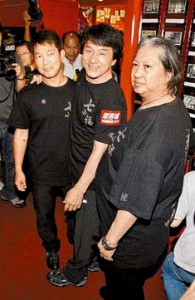
Yuen Biao, Jackie Chan and Sammo Hun reunite to celebrate the 50th anniversary of the Seven Little Fortunes.
Some guys train and don’t care about the other players. This is no good. I really tried to train them with the philosophy of team spirit. The first year it was very good, almost champions. The second year we went down a bit. The third year they were asking me: “How is the planning for next year?” I said: “Very good!” Before, when I was young, I had a team and Jackie Chan had a team. We all played together. Who Lost? Go to the restaurant. (laughter)
I hate him. I really hate him. (laughter) I said to him: “We will play in the Summer, only for fun. Who will lose, will pay. Then we get together, he hires a football team! He cheated! I said: “ Why are you cheating?! What for?” (laughter) He said “Eat” (laughter). So, Jackie Chan has his own production crew and we would like to go and play a game, and the loser would foot the bill of the dinner. So for me, it was just a game. There were 12 people! A banquet! My heart felt very painful (laughter). My players were always movie workers. Jackie would bring the professional soccer players! I will remember it my whole life. (laughter)
JOURNALIST: In The Bodyguard, which aspect of the character is most challenging to play?
SAMMO HUNG: My desire was to have a love making scene in the bed! (laughter) The challenge is to get out of the bed! Actually, it’s true there are a lot of 70 year old people wake up at the same time. So, to portray an older person is more difficult. The alarm goes off at 6, they probably woke up already. But it’s still hard for them get out of bed. I really value my time spent with senior people, just like my grandfather. I was practically brought up by my grandfather. When I was shooting Wheels on Meals in Spain, someone called and told me my grandfather had passed. I sat there for some time thinking about it. It’s quite shocking when you realize someone that close to you has passed. Also, my mum just passed a few years ago. I used to go down to her room every day and say “Hi Mom!” And then one day you go to that room and they are not there anymore. So, it’s very important to while they are still alive to spend time with your seniors, your family. And I encourage every one of you to spend more time with them, every minute counts, that’s very important. (audience clapping)
JOURNALIST: The first question is about the fighting style you use in The Bodyguard. Did you use a particular style of kung fu?
SAMMO HUNG: I used some kung fu and some more realistic styles. I did some research about secret agents’ training techniques. So, the principle of The Bodyguard is he is not going around to stir up fights. The Bodyguard is supposed to protect whoever he is working for, like a leader or senior person. The Bodyguard mentality is to stay alert all the time, aware of the environment and detect danger even before it comes to you. So the main job is to control danger before it comes to you. So, the main thing is The Bodyguard is not out to attack, it’s more for protection. Control them and not kill them. So they don’t have any chance to come again.
JOURNALIST: That’s why you break the arms and the legs?
SAMMO HUNG: Yeah, yeah. Arms and legs. So it’s easy to control the other people. So one punch, the guy lies down, 30 seconds later, he comes again. Very tired! (audience laughter) So many years ago I wanted to try and make a movie like The Bodyguard, but I didn’t make it. I wanted to make it set before this one, when his profession was a bodyguard. Now I did more research before shooting. And the old guy who has already retired in the movie, someone comes to attack him, he has an automatic reaction. So many years have passed but he has a natural reaction. So I decided to shoot differently than my older movies. Not just TA! TA! (Sammo acts out punching and blocking) Just like how the attacker comes, I want to do one move, then they don’t have a chance again. So in this movie I use a lot of grabs.
JOURNALIST: I’ve seen most of your movies, and you have different styles from movie to movie. I would like to know, I would guess that the fight is not written in the script, but it’s something that you create on the set. I want to know how you stage a fight. And how you use the props, like in Twinkle, Twinkle Lucky Stars you use the tennis racquets. So how do you create a fight? On the set, or before?
SAMMO HUNG: It’s already decided. I know what I want. I don’t want the fight scene to always be the same. When I fight with the Japanese guy (Yasuaki Kurata) and use the tennis racquets, I think it’s funny. We have a similar weapon in Chinese Opera on the stage. So I think the audience will be excited, they have never seen that before. Now before shooting, I need to decide everything.
JOURNALIST: Like a ballet, a dance? So you decide where to put the camera later?
SAMMO HUNG: No. When I shoot, when I decide the movement, I already have the camera angle. I have a system, I can see my movement, from this side I can see it’s good or no good. I will tell my crew my camera angle is like this, more power, more clear. So we already decide. And then at the end we shoot on the set. A long time ago, we all think about it on the set. This wastes so much time. We will take a lot of time to think. Now it’s a chance with every movie, we need 2 to 3 months to practice. The main cast, if they have time, come to train.
JOURNALIST: So it’s you who decides the camera, how to film the fight?
SAMMO HUNG: Yeah I will decide everything.
JOURNALIST: Because your style is very clear. We can see everything. It’s not like the American movie where you can’t see who received the punch, it’s very clear.
SAMMO HUNG: Well sooner or later they will catch on. They have already imported a lot of ideas from martial arts and they have studied a lot of Asian kung fu movies, so eventually all of this will be implanted in their ideas and incorporated in them in time.
JOURNALIST: Is it the fault of the editor?
SAMMO HUNG: It depends what kind of editor they’re hiring to do the job. To be able to capture the Chinese martial arts, every stroke and punch, it’s better with Chinese training. Somebody from Asia with that kind of experience will be a better editor. Very easy, I will show you (Sammo asks the journalists to grab his wrist) If you catch me – harder, harder – (Sammo breaks the hold). Very easy. In America the audience they don’t know what has happened. People, they don’t have much power in the wrist. If you just show in one shot, you don’t know what happened. So if you know the martial arts, know the action, then you will think about the way it’s shot. So two hands – (the journalists holds both of Sammo’s wrists) – very easy (Sammo breaks the hold). So it’s what you want the audience to see, and what angle you use. Before you create a fight, you have to already have the shot.
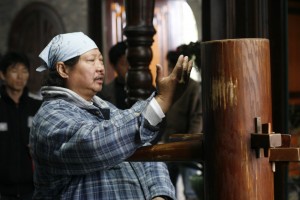
Sammo Hung, on the set of “Ip Man,” demonstrating the use of the wooden dummy, a training device associated with the Wing Chun martial arts style.
MARTIN SANDISON: You made two of the original Wing Chun films Warriors Two and Prodigal Son, then you made Ip Man and Ip Man 2. Could you talk about choreographing the Wing Chun style and how it changed?
SAMMO HUNG: So before, Lau Kar Leung is famous for depicting another style, Hung Kuen onscreen. So I found out that I need to come out with a new idea, something innovative. Another type of martial art that is also exciting and interesting to be depicted onscreen. And then I learnt about Wing Chun. I know that Wing Chun is a very interesting style, and has a very strong philosophy. So I picked up the story of Grandmaster Leung Tsan, so I developed the story using this protagonist. I studied Wing Chun for a long time, and also studied the philosophy, the methods and teaching behind it. I believe if I don’t learn everything inside out it won’t be right for me to be directing the film about Wing Chun. So in order to tell the correct story and depict Wing Chun onscreen, I had to learn it inside out. And then I had to draw my own conclusion – how best to show it to the audience. So it took a while, but then I began to design the shooting style.
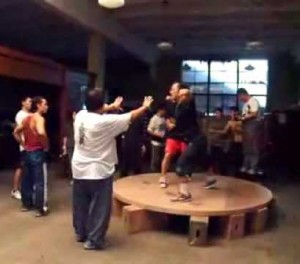
Sammo Hung developing the round table scene in “Ip Man 2”
So the first Wing Chun style films I made were set in the Ching Dynasty, wearing the Ching costumes, it’s a period piece. So there is a big difference between making these movies and Ip Man, because of the background. So the time changed from the Ching Dynasty to a little but more modern. So the first Ip Man, the story is set about 1940, so quite close to modern times. So you gotta create more like a modern movie. When you’re fighting you gotta let the audience believe the fight. Not only like a drama, it’s gotta be a modern film. So the audience will say: “Yes. This is a real fight.” Like Ip Man 2, when we finished the first one, the director Wilson Yip said “If we have a chance to make part 2, we fight on the table. Ok?” (laughter) So when we were shooting, I had to be thinking “What kind of table? How big is the table? What’s at the side of the table?”
So when I was creating the scene, I used the round table, the chairs at the side. Before, at the side there would be knives, in the period movie. So if someone fell, BA! They would get killed. But now in the modern times, just chairs. So I was thinking “How do we fight on the table? So we turn like that. I’ve gotta be thinking of everything. Then we keep trying. Actually it’s not dangerous! The table was not that high. One problem was the table was very slippery. So we poured the Coca-Cola. Very sticky! (audience laughter) So every movie I’ve gotta be thinking “What am I showing to the audience?”
JOURNALIST: So you’ve been in a lot of fight scenes in countless films, what do you think has been the most challenging fight scene, or the most rewarding?
SAMMO HUNG: In one film I did a stunt. It was about 60 feet high, somebody kicked me. Before we have a lot of cardboard boxes to protect me. But there were only 6 of them this time, very small! And I was standing on the mountain! (Sammo gets up to act it out; audience laughter) So the director said: “Rolling!” And I am still there, I need a few minutes. Then I said to the actor: “Kick me!” “Rolling! Action!” PA! Don’t worry I’m still there. I said to the actor: “No, no, no” (audience laughter) He kicked me three times. You gotta be controlled PA! The position, holding your body you cannot turn to fast. If you go to fast you will roll, roll too much. Holding the position AAHH! Almost get there! When I do that, I think this is a mountain on the beach, so lots of sand. So if I fall I will just bleed a little, not be seriously wounded. Maybe I won’t die (audience laughter).
JOURNALIST: Which movie was it?
SAMMO HUNG: (Sammo gives Cantonese title) The two words mean selling your life. It was back in the 60’s, when I was a stuntman and action director. So that is one of the scenes that was most memorable. The other is an ending scene, I fight the Japanese guy. The action director is Lau Kar Leung. He directed the sword fight with Andy Lau. Then the action director changed to me, because it was an open hand fight. The second shot follows me running, jumping PA! Kick the Japanese guy. I fell down, and get up, stand up. I said “Ok. I will take the third shot first”. Then we fight. The whole sequence was shot, the fight was finished. Then we started from the beginning. “Action!” TUNG! Not a good take. Not enough power. One more take PA! I kick him. He was scared and thought he would lose his balance. We did it again, I said no, because my hand was broken. Nobody believed it! I said: “Hey!” You could see my hand was broken! (audience laughter) Because I fell on my hand. The director said: “Are you kidding?” I said: “NO!” (audience laughter) I went to the hospital, and got the plaster cast on my hand. Then I went back to the set, shoot again. Because the next day I was leaving for Canada. In the shot if you see my hands, it’s a double. (audience laughter)
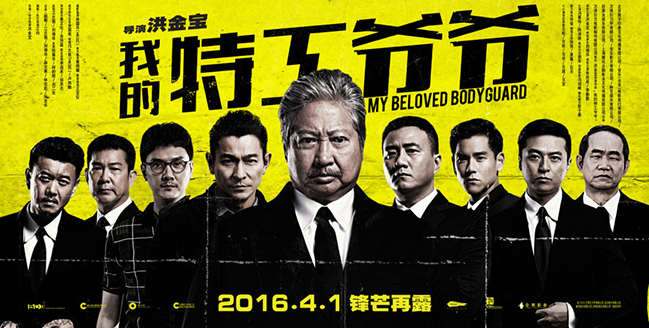
JOURNALIST: In the film The Bodyguard, for the action scene why do we see this movement of the camera, like the shaky-cam style?
SAMMO HUNG: I don’t think the shaky camera was a special artistic expression, at that moment someone bumped in to the cameraman! (audience laughter)
JOURNALIST: Was it shot in Manadarin?
SAMMO HUNG: No, some of the cast spoke Mandarin, I spoke Cantonese. Because in Mandarin they have lots of different accents. I can speak general Mandarin. But I don’t have an accent. I speak Cantonese because I’m from Hong Kong. So when I shoot I speak Cantonese. The Young girl speaks Cantonese, Andy Lau speaks Cantonese. The other actors are from China, they already have their accent.
MARTIN SANDISON: Thanks so much, your movies mean so much to me. (shaking hands with Sammo)
SAMMO HUNG: Thank you, thank you. Did you see my movie?
MARTIN SANDISON: Yes, I loved it. I will watch it again tonight. Can I get a quick picture?
SAMMO HUNG: Ok, 500 dollars. (laughter) Wow, this is a long time ago, Mao Ying huh? (as Sammo looks at my 36 Styles Angela Mao Ying T-shirt)
MARTIN SANDISON: Yeah great movies! Thank you so much!
SAMMO HUNG: Thank you!
Note: The following portion of the interview is a one-on-one conducted by Matija Makotoichi Tomic and Goran Grey:
MMT/GG: As one of key figures of Hong Kong action cinema, what’s your view on martial arts movies today and back in the good old days?
SH: I can rightfully say that during our time, we knew how to make martial arts movies, and those were real martial arts movies. I don’t see that same type of martial arts movies coming out of Hong Kong today.
MMT/GG: There’s an export of Hong Kong talents today, filmmakers that went to Mainland China and became actively involved in the movie industry there, working over there. So, it seems like today in Hong Kong there is a void of martial arts movies being made.
SAMMO HUNG: That’s because the Chinese market has grown so big. The box-office revenue in the country these days is so high, people are going to the theatre so much. It’s very hard to compete for Hong Kong market alone to survive. Chinese box-office revenue exceeded those of many American markets, they are so big. I’ll give you an example of the calculation: the production cost of a typical Hong Kong movie could be, say about 1.5 million, but you can only get maybe 5 million back from the box-office. So, it’s for the practical reasons, it’s not possible to make the same type of movies just for Hong KOng market alone.
That’s why I didn’t want to make my new movie for any market in particular, I made it to be universally acceptable by both Hong Kong market or Hong Kong audience, or the Chinese audience in Mainland China. Or outside the country, like Europe. People say: this is Mainland China, this is Hong Kong… no, I just want to make a movie. That’s entertainment you know? I hope everybody likes it. But in Hong Kong there’s a problem when we have some actor or actress coming from Mainland China. The reviews say it’s Mainland China movie and people don’t wanna watch it. Mainland China is the same. They have a lot of Chinese actors, there’s one actor from Hong Kong and they say that is a Hong Kong movie. I don’t know why. I wanted to make this movie entertaining, I want entertainment. I wanna say: “People, go to the theatre, only one hour and forty minutes, you’ll have a great time. You will enjoy!” That is my point, you know? Did you enjoy in the theatre, did you see my movie?
MMT/GG: No, not yet.
SAMMO HUNG: Ok, you will enjoy it tonight, or maybe tomorrow (laughs)
MMT/GG: Tomorrow… yes, I’m sure we will.
SAMMO HUNG: But it seems that the segregation is initiated by the audience themselves because of the geographic division. It was not my intention to make any division, I wanted to make an entertaining movie so that everybody could enjoy. There shouldn’t be any barriers basically.
MMT/GG: Can you tell us who brought Casanova Wong in Golden Harvest?
SAMMO HUNG: That was a long time ago?
MMT/GG: Yeah, late 70’s. The South Korean kicker.
SAMMO HUNG: Yes… now he’s boss in South Korea.
MMT/GG: He stared in your movie Warriors Two.
SAMMO HUNG: Yes, actually he starred in a lot of movies. He was popular for his jump over the table, then kick. His kick is very nice, very good. He knew how to do it, but he needed somebody to decide for him. I scolded him a lot because of that, I gave him a hard time. I used to tell him: “You’re brainless!“ Why? I said to him: “You gotta be thinking. I tell you one, you go one, I tell you two, you go two. If I say one, you gotta say ten! You gotta be different!” (yelling)
MMT/GG: Speaking of Casanova, is it true that South Korean kung fu movies influenced the choreography in Hong Kong movies?
SAMMO HUNG: A little bit, not a lot. They did influence, but not a lot. Because I choreographed, I decided the kicks, the acts for him (Casanova). I don’t want people just to follow my orders. I want you to come up with your own individual idea and use your own brain to digest what’s been taught to you and then bring out the new. Your own creative method of doing things.
MMT/GG: In 1988, you stared in a movie called Painted Faces. It’s about your growing up and training at the Peking Opera School. How much of it is true?
SAMMO HUNG: Almost 70%. Actually, the real training was harder than what is portrayed in the movie.
MMT/GG: About a month ago, martial arts community lost another great legend, Fung Hak-On. Some of his most memorable roles were in your movies The Iron Fisted Monk and Warriors Two. What can you say about him?
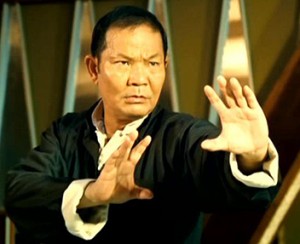
The late Fung Hak On in “Ip Man 2”
SAMMO HUNG: Ah, nothing to say. We had a relationship a long time ago, then we fell apart. Of course, my heart is sad. I was overseas at the time when he passed away, I wanted to pay my respect but… He was a long time collaborator from very old days. He left Hong Kong and went to America long time ago and there he won the lottery. He won the lottery in San Diego, he was very lucky. And then, when he came back to Hong Kong, we worked together on Ip Man 2. I would tell him what to do and he would just do it. That’s ok, I taught about everything for him.
We were friends before. When we were young, we were always going out to bar, drinking, fighting on the street. It was long time ago. Of course I’m really upset, but what can I say? What can I do? Just pray to him: “Hey you on the other world! Watch us, ok? Give me luck!”
Thanks again to Martin Sandison, Matija Makotoichi Tomic, Goran Grey, Ryan Law, the great staff at the Udine Far East Film Festival, as well as all names involved – and of course, Sammo Hung himself – for making this interview happen.

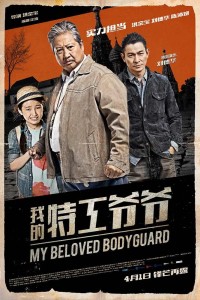
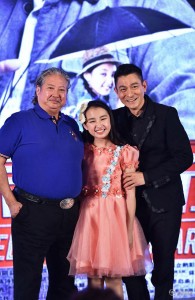
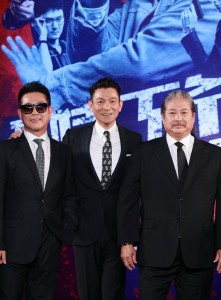
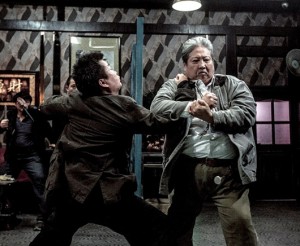
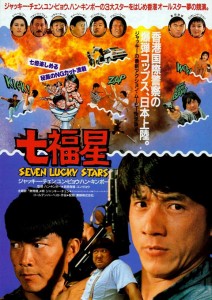
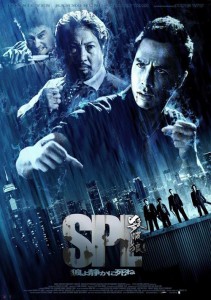
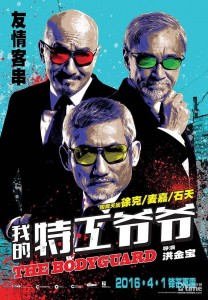
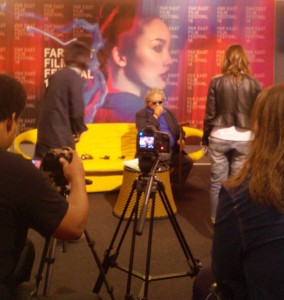
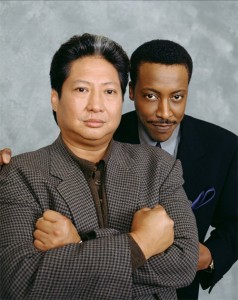
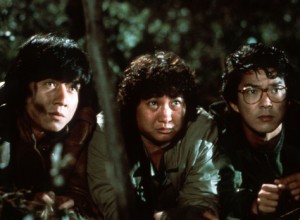
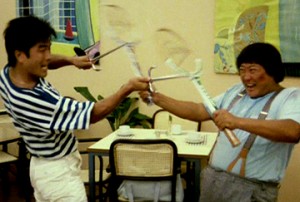
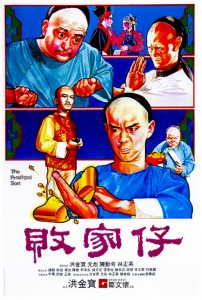
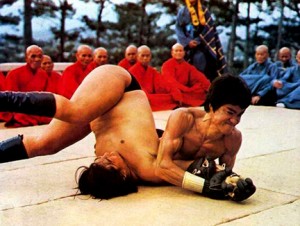
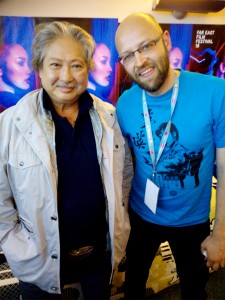
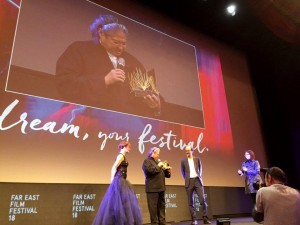
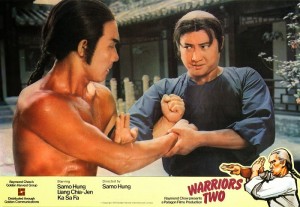
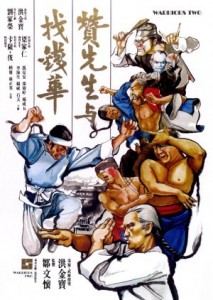
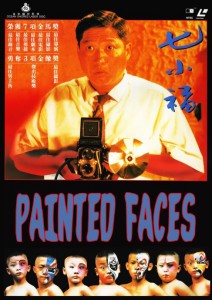


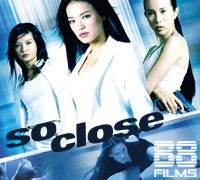
very nice interview, and good to see some of the other writers like Fred etc being named
Sammo is one of the best, and always a great interview
Very cool stuff
Great interview, thank you!
Thanks so much Mike and Bunta!
I like Sammo’s comment when you asked for a photo with him. 🙂 (most stars would charge you!) Glad to see he still has a sense of humor!
Really great job Martin (and all the other journalists involved)! Thanks.
I love a good, long, in-depth interview, and this was exactly that. I never tire of hearing what Sammo has to say about the industry, his films, philosophies, and life in general.
Huge thumbs up to cityonfire.com for publishing interviews like this and the recent one with Won Jin. That’s the way to do it. Please, keep ’em coming.
Good to know that Sammo plans on keeping traditional kung fu movies alive. I hope he can reach that goal soon, and get some films into production. First though, must find the future stars for the genre.
Great stuff, a very interesting read.
Thanks a lot Bob!
Pingback: Udine Far East Film Festival: Our Dream, Your Festival
Pingback: [Telemeno] 1998 – Martial Law (Più forte, ragazzi) | Il Zinefilo
Is there anyone in Holly wood that can contact me?
Hi 🙂
I am fully aware that none of you know me, but I consider myself a copy artist so im a really fat person who is completely aware of his size and I would like to just say that im not sure where to find help but i can do anything and everything any other human can do athletic wise so i am just trying to find a way to contact Sammo Hung to see if he could be so cool as to contact Sammo Hung for him to be my master in a maybe movie or something
I can do anything any movie want and I love Sammo
You sound like the people who contact Mike Leeder regularly.
LOL!